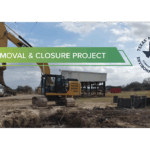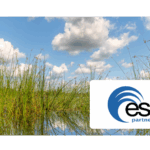
Environmental compliance auditing is a crucial practice in San Marcos, ensuring that businesses and organizations adhere to environmental regulations and standards. By conducting audits, San Marcos aims to promote sustainability, protect natural resources, and prevent pollution. This article will delve into the significance of environmental compliance auditing, the role of San Marcos in ensuring compliance, the auditing process, challenges faced, and the future of this essential practice.
Understanding Environmental Compliance Auditing
Environmental compliance auditing entails assessing an organization’s adherence to environmental laws, regulations, permits, and industry standards. It involves thoroughly reviewing the organization’s activities, processes, and systems to identify any non-compliant practices or potential risks. By conducting audits, San Marcos aims to promote responsible environmental stewardship and avert any harm caused by businesses to natural resources and ecosystems.
Definition and Importance of Environmental Compliance Auditing
Environmental compliance auditing is the systematic evaluation of an organization’s environmental practices to verify compliance with legal requirements and internal policies. It is crucial for ensuring that businesses operate in an environmentally sustainable manner, minimizing their impact on air quality, water resources, and biodiversity. Compliance auditing serves as a proactive measure to identify and rectify any deviations promptly, mitigating potential penalties, reputational damage, and adverse environmental effects.
Key Components of Environmental Compliance Auditing
Environmental compliance audits comprise various key components that ensure a comprehensive evaluation of an organization’s environmental performance. These components include:
- Reviewing relevant permits, licenses, and regulatory requirements
- Assessing compliance with air quality, water management, waste management, and hazardous material handling standards
- Evaluating the effectiveness of environmental management systems and policies
- Examining employee training and awareness programs
- Identifying potential areas of improvement and recommending corrective actions
Reviewing relevant permits, licenses, and regulatory requirements is a critical aspect of environmental compliance auditing. It ensures that organizations have obtained the necessary authorizations to operate and that they are complying with specific regulations applicable to their industry. By thoroughly examining these permits and licenses, auditors can identify any gaps or discrepancies that may exist, allowing organizations to take appropriate corrective actions.
In addition to assessing compliance with air quality, water management, waste management, and hazardous material handling standards, auditors also evaluate the effectiveness of environmental management systems and policies. This involves examining the organization’s procedures and protocols for managing environmental risks and ensuring that they are aligned with industry best practices. By doing so, auditors can identify areas where improvements can be made to enhance the organization’s overall environmental performance.
The Role of San Marcos in Environmental Compliance
San Marcos plays a critical role in ensuring environmental compliance within its jurisdiction. The city strives to create a sustainable and environmentally responsible community by implementing stringent environmental policies and regulations for businesses and residents.
San Marcos, nestled in the heart of a diverse ecosystem, recognizes the importance of preserving its natural surroundings. The city’s commitment to environmental stewardship extends beyond regulatory compliance to include community engagement and education initiatives. Through partnerships with local schools and environmental organizations, San Marcos organizes tree planting events, river clean-ups, and educational workshops to raise awareness about the importance of conservation.
Environmental Policies in San Marcos
San Marcos has enacted a range of environmental policies to safeguard its natural resources and maintain a high quality of life for its residents. These policies include strict emission controls, wastewater management guidelines, recycling programs, and preservation of open spaces. By enforcing these policies, San Marcos encourages businesses to operate in an environmentally conscious manner, ultimately benefiting both the community and the environment.
The city’s dedication to environmental sustainability is evident in its innovative green building initiatives and renewable energy programs. San Marcos offers incentives for businesses and homeowners to adopt energy-efficient practices, such as solar panel installations and water conservation measures. These efforts not only reduce the city’s carbon footprint but also contribute to long-term cost savings for residents and businesses.
Local Government’s Role in Environmental Compliance
The local government in San Marcos actively collaborates with businesses and organizations to ensure environmental compliance. It provides guidance, support, and resources to help businesses navigate complex environmental regulations. The government also conducts regular inspections and audits to verify compliance and takes necessary enforcement actions to address non-compliance issues.
Furthermore, the city government in San Marcos fosters a culture of environmental responsibility through public outreach campaigns and sustainability awards. Recognizing and celebrating businesses and individuals who demonstrate exemplary environmental practices not only incentivizes others to follow suit but also fosters a sense of community pride in preserving San Marcos’ natural beauty for future generations.
The Process of Environmental Compliance Auditing in San Marcos
The process of environmental compliance auditing in San Marcos involves several stages, each contributing to a comprehensive assessment of an organization’s environmental performance.
Pre-Audit Activities
Prior to conducting an audit, relevant permits, licenses, and legal requirements are reviewed. The auditors familiarize themselves with the organization’s operations, relevant environmental policies, and potential compliance risks. They also develop an audit plan outlining the scope, objectives, and methodologies to be used during the audit.
Conducting the Audit
The audit itself involves on-site visits, interviews, document reviews, and sample collection. Auditors assess compliance with specific regulatory requirements, environmental management systems, and internal policies. They identify any non-compliant practices, potential risks, or areas for improvement. Auditors also engage with employees to understand their roles and responsibilities in maintaining environmental compliance.
Post-Audit Activities
After the audit, a comprehensive report is prepared, detailing the findings, recommendations, and suggested corrective actions. The organization is given an opportunity to respond to the audit findings and propose their own action plan. Follow-up activities may include monitoring the implementation of corrective actions and conducting subsequent audits to track progress.
Challenges in Environmental Compliance Auditing
While environmental compliance auditing is crucial, businesses often face challenges in achieving and maintaining compliance.
Common Obstacles in Compliance Auditing
Some common obstacles encountered during compliance auditing include:
- Lack of awareness regarding environmental regulations
- Complexity of regulatory frameworks
- Insufficient resources for environmental compliance
- Inadequate training and education on sustainable practices
Overcoming Challenges in Environmental Auditing
To overcome these challenges, businesses can adopt proactive measures such as:
- Providing regular training and education programs to employees
- Engaging with environmental consultants or auditors to understand regulatory requirements
- Implementing robust environmental management systems
- Regularly reviewing and updating internal policies and procedures
The Future of Environmental Compliance Auditing in San Marcos
As the world becomes increasingly aware of the importance of environmental sustainability, the field of environmental compliance auditing is also evolving. San Marcos can expect several future trends in this area.
Emerging Trends in Environmental Compliance
There is a growing emphasis on adopting sustainable practices and reducing carbon footprints. This includes the incorporation of renewable energy sources, implementation of circular economy principles, and the integration of technology for enhanced data collection and analysis.
The Impact of Technological Advancements on Auditing
Technological advancements are revolutionizing the auditing process. Tools such as remote sensing, data analytics, and artificial intelligence are enabling auditors to conduct more accurate and efficient assessments. Additionally, digital platforms and software are streamlining the reporting and monitoring of compliance, making it easier for organizations to demonstrate their commitment to environmental stewardship.
In conclusion, environmental compliance auditing is a vital practice in San Marcos to ensure businesses and organizations operate in an environmentally responsible manner. By understanding the significance of audits, the role of San Marcos in ensuring compliance, the auditing process, challenges faced, and the future trends, businesses can achieve and maintain environmental compliance, contributing to a sustainable and thriving community.
As San Marcos continues to prioritize environmental responsibility, partnering with a knowledgeable and experienced consultant is key to navigating the complexities of compliance auditing. ESE Partners, with a strong presence in Texas and a team of dedicated environmental engineers and scientists, stands ready to assist your business in meeting its environmental obligations. Whether you require assessment, remediation, or compliance services, ESE Partners offers innovative solutions tailored to your industry’s unique challenges. Embrace the opportunity to improve your community’s quality of life while advancing your business responsibly. Request A Proposal today and let ESE Partners guide you towards sustainable success.








